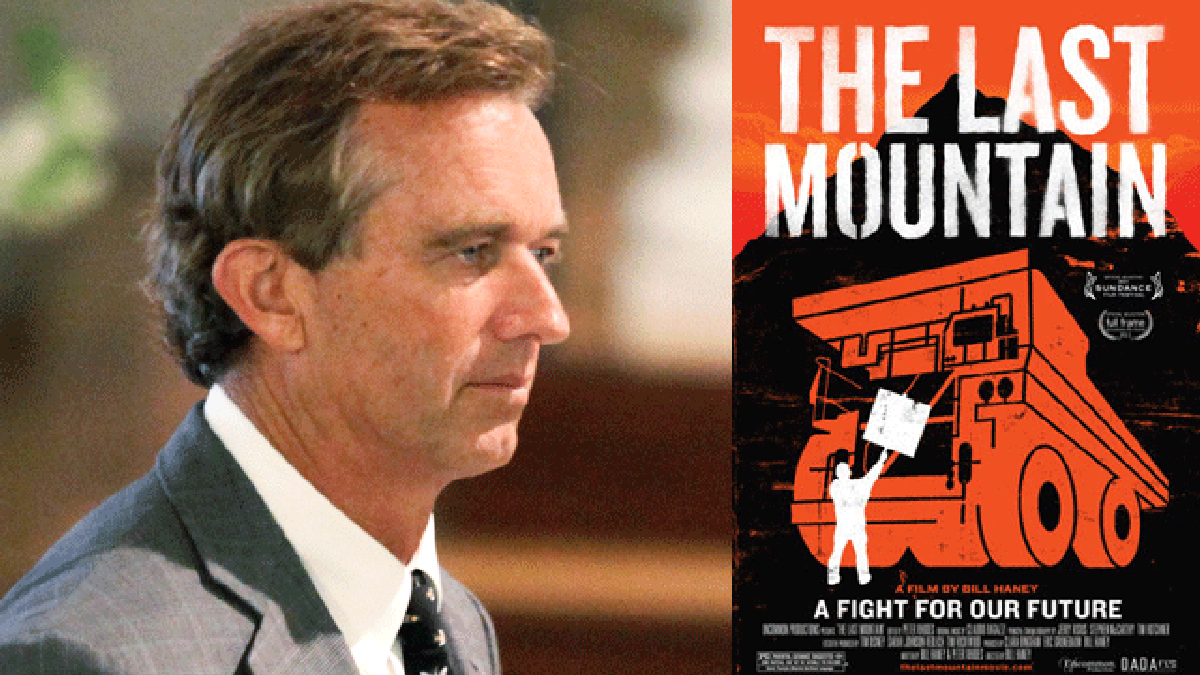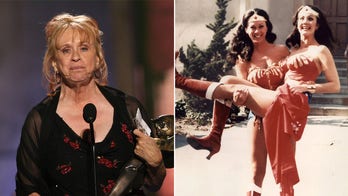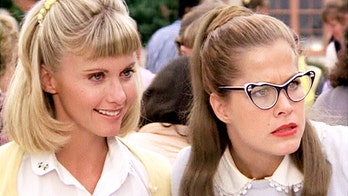
(Reuters/Last Mountain)
In his State of the Union address earlier this year, President Obama made a bold pledge for “clean energy,” drawing a mostly positive reaction, and in 2009 his administration announced plans to pour $1 billion into “clean coal” project FutureGen.
However, one person unimpressed with the clean talk is environmental attorney Robert F. Kennedy, Jr., who stars in the upcoming anti-coal mining documentary, “The Last Mountain.”
“I would like Obama to stop saying that 'clean coal' phrase,” Kennedy told FOX411’s Pop Tarts column in an interview promoting the film. “I would like him to end the subsidies to coal and oil, and do things we need to do to rationalize free market capitalism in this country so we can have real free market capitalism, and give proper incentives to wind and solar, which we are going to need to beat the Chinese in the marketplace and restore prosperity in our country.”
Set in Coal River Valley, West Virginia, “The Last Mountain” explores the battle being fought over Appalachia, and the individual health and environmental repercussions that stem from the mining and burning of coal, and in particular, the practice of Mountain Top Removal.
According to the filmmakers, big coal corporations wield incredible financial influence over lobbyists and government officials in both parties, and the citizens in the documentary argue that dynamiting the mountain’s top off to mine the coal pollutes air and water, and is responsible for the deaths of their neighbors and spreads pollution to other states.
“We needed coal mining for a long time and there are lots of people who did coal mining and they should be proud of it,” said the film’s director, Bill Haney. “But what we really lack now is the political will to embrace the future and let go of the past, and we have that problem in part because the historical industries make so much money using these old plans.”
Terry Headley, Senior VP at the West Virginia Coal Association and Chair of the Coalition for Mountaintop Mining counters that environmental restoration strategies are strictly enforced after mining in an area has ceased, and the coal industry is vital to our country’s economy.
“Even a cursory view of mountaintop mining in West Virginia would reveal that it is only practiced in those regions where coal is accessible, and a strictly-regulated post mining plan for complete restoration which often includes needed commercial, industrial or recreational facilities follows active mining,” he explained. “Consequently, it is a win-win for the state and our residents. As the coal reserve is extracted, hundreds of jobs are created and sustained for years, millions of payroll and tax dollars are infused into local and state economies, and the land is ultimately restored to a higher value, and the revenue stream from the site continues onward.”
Kennedy acknowledged that his uncle, John F. Kennedy, would never have been President of the United States if he was not supported by the coal miners in West Virginia, and his father, Robert F. Kennedy, repeatedly made trips to Appalachia to try and help alleviate the problems associated with “poverty, justice and the erosion of democracy in that area.”
“As with all of these issues, good environmental policy 100 percent of the time is identical to good economic policy,” he continued. “You can have a few years of pollution-based prosperity and generate the illusion of a prosperous economy, but our children are going to pay for the joy ride.”
Kennedy said that the controversy runs so deep that several of the film’s subjects who spoke out against the coal mining industry have since suffered serious consequences.
“Larry Gibson [one of the anti-mining activists] has had his dog hanged, he’s had his house burned, and he’s been run off the road by coal trucks on occasions,” he said.
President of the West Virginia Chamber of Commerce, Steve Roberts, said that while mining certainly has its opponents, it is predominantly supported and essential for keeping the state alive.
“Miners need a place to work, communities need the jobs and tax revenues provided by mining and our nation and the world need coal,” he told us. “The mining process involves disturbing land, and that brings controversy, but many people do not stop and think that building shopping centers, schools, highways and office buildings also involves disturbing land. Yet few of us would agree in abolishing this kind of infrastructure.”
Roberts also urges people to contemplate the importance of coal for energy in modern society.
“West Virginia is the second largest coal producing state in the nation. Few in the country want to do without the electricity that turns on lights, powers the Internet and provides comfortable indoor air temperatures for millions of our nation’s people,” he added. “The televisions and Internets over which this story is told are powered by electricity that comes from coal. The world continues to have a near endless appetite for the standard of living that is powered by coal.”






